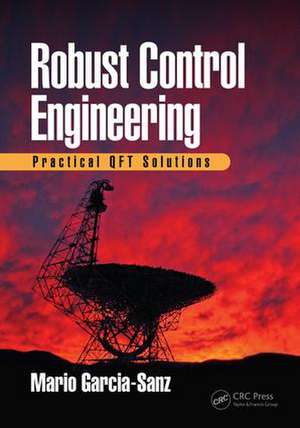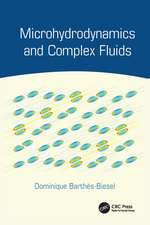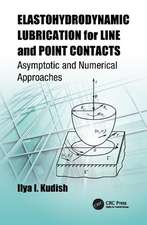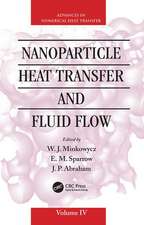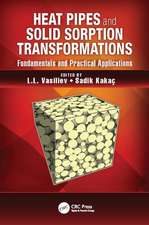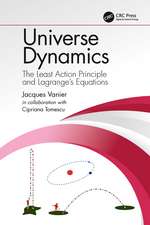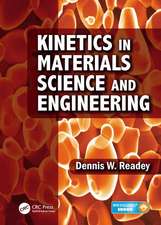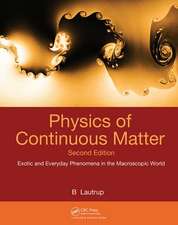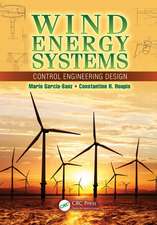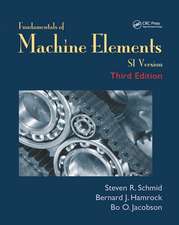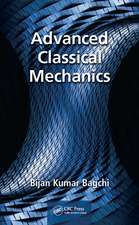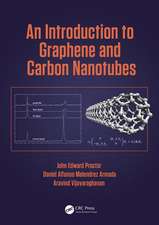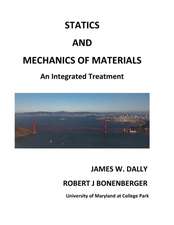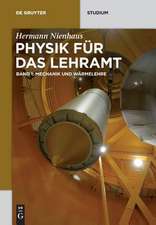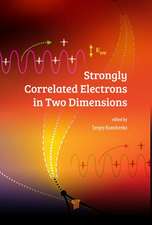Robust Control Engineering: Practical QFT Solutions
Autor Mario Garcia-Sanzen Limba Engleză Hardback – 16 iun 2017
| Toate formatele și edițiile | Preț | Express |
|---|---|---|
| Paperback (1) | 499.93 lei 6-8 săpt. | |
| CRC Press – 30 iun 2021 | 499.93 lei 6-8 săpt. | |
| Hardback (1) | 781.82 lei 6-8 săpt. | |
| CRC Press – 16 iun 2017 | 781.82 lei 6-8 săpt. |
Preț: 781.82 lei
Preț vechi: 1037.75 lei
-25% Nou
Puncte Express: 1173
Preț estimativ în valută:
149.60€ • 156.52$ • 124.27£
149.60€ • 156.52$ • 124.27£
Carte tipărită la comandă
Livrare economică 03-17 aprilie
Preluare comenzi: 021 569.72.76
Specificații
ISBN-13: 9781138032071
ISBN-10: 1138032077
Pagini: 578
Ilustrații: 250 Line drawings, color; 134 Line drawings, black and white; 31 Halftones, color; 20 Halftones, black and white; 25 Tables, black and white
Dimensiuni: 178 x 254 x 36 mm
Greutate: 1.43 kg
Ediția:1
Editura: CRC Press
Colecția CRC Press
ISBN-10: 1138032077
Pagini: 578
Ilustrații: 250 Line drawings, color; 134 Line drawings, black and white; 31 Halftones, color; 20 Halftones, black and white; 25 Tables, black and white
Dimensiuni: 178 x 254 x 36 mm
Greutate: 1.43 kg
Ediția:1
Editura: CRC Press
Colecția CRC Press
Cuprins
Introduction. QFT Robust Control. Unstable Systems and Control Solutions. Time-Delay and Non-Minimum Phase Systems. Distributed Parameter Systems. Gain Scheduling/Switching Control Solutions. Nonlinear Dynamic Control. Multi-Input Multi-Output Systems: Analysis and Control. Control Topologies. Controller Implementation. Case Study 1: Satellite Control. Case Study 2: Wind Turbine Control. Case Study 3: Wastewater Treatment Plant Control. Case Study 4: Radio-Telescope Control. Case Study 5: Attitude and Position Control of Spacecraft Telescopes with Flexible Appendages. Appendix 1: Projects and Problems. Appendix 2: QFT Control Toolbox—User’s Guide. Appendix 3: Algorithm—Nyquist Stability Criterion in Nichols Chart. Appendix 4: Algorithms—Smith Predictor Robust Control. Appendix 5: Algorithms—DPS Robust Control. Appendix 6: Algorithms—Gain Scheduling/Switching Control. Appendix 7: Algorithms—Nonlinear Dynamic Control. Appendix 8: Algorithms—MIMO Robust Control. Appendix 9: Conversion of Units.
Recenzii
"There had been a big vacuum as far as textbooks on QFT is concerned. The books in market are either outdated and not easily available or do not discuss examples with MATLAB extensively as your book does. Your book completely fills in that gap with more updated information and relevant MATLAB based examples. The book is complete and self-contained with a wide variety of examples as ranging from Satellite control to Wind Turbine control – all using QFT techniques. Further, from a student point of view, many projects have been discussed with QFT MATLAB toolbox which is a highlight of this book and hence a definite must have for anyone interested, doing research and working in this field. The author has blended his practical experience also into this book which makes it unique and the favourite of any QFT designer."
— Rajesh Joseph Abraham, Indian Institute of Space Science & Technology, India
"Professor Garcia-Sanz is one of the leading exponents of the robust control design method, which is referred to as quantitative feedback theory (QFT). This excellent text introduces the fundamentals of QFT and provides control solutions for a range of systems including unstable, transport delay, non-minimum phase and distributed parameter systems.
The QFT design method provides real robustness to uncertainties of various types. The method originated from the work of Professor Isaac Horowitz but this book extends his original work in many ways. It is particularly valuable for the range of applications considered including wind turbines, wastewater treatment plants, power systems, satellites, radio telescopes and manufacturing systems.
A feature of such design texts is that they often contain MATLAB toolboxes to enable the design methods to be assessed. In this case the book includes problems where the MATLAB QFT control toolbox can be applied. This was developed by the author.
The book is written in a style that should be very accessible to engineers, particularly those that have a classical control engineering background. In fact, it provides access to modern multivariable control design methods but it is based upon frequency response ideas that should be very familiar to most engineers.
The layout of the text is excellent and it includes numerous examples and problems. It should be valuable to experienced engineers working on real control design applications but it is also suitable for undergraduate and graduate students pursuing courses on control engineering. It is recommended for the bookshelves of engineers or the more economical eBook version can be convenient."
— Applied Control Technology Consortium E-News, 2017 Issue
"This book covers the fundamentals of robust control using quantitative feedback theory (QFT). Practical control solutions are provided for unstable, time-delay, nonminimum phase, or distributed parameter systems. Moreover, plants with large model uncertainty and/or high-performance specifications, nonlinear components, and multi-input, multi- output characteristics or asymmetric topologies are also considered. The reader will discover practical applications through a collection of 50 real-world case studies and projects, in which the author has been involved over the last 25 years. These applications include commercial wind turbines, wastewater treatment plants, power systems, spacecraft with flexible appendages, large radio telescopes, and industrial manufacturing systems. The book presents problems and projects using the QFT Control Toolbox for MATLAB, which was developed by the author."
—IEEE Control Systems Magazine, December 2017 Issue
— Rajesh Joseph Abraham, Indian Institute of Space Science & Technology, India
"Professor Garcia-Sanz is one of the leading exponents of the robust control design method, which is referred to as quantitative feedback theory (QFT). This excellent text introduces the fundamentals of QFT and provides control solutions for a range of systems including unstable, transport delay, non-minimum phase and distributed parameter systems.
The QFT design method provides real robustness to uncertainties of various types. The method originated from the work of Professor Isaac Horowitz but this book extends his original work in many ways. It is particularly valuable for the range of applications considered including wind turbines, wastewater treatment plants, power systems, satellites, radio telescopes and manufacturing systems.
A feature of such design texts is that they often contain MATLAB toolboxes to enable the design methods to be assessed. In this case the book includes problems where the MATLAB QFT control toolbox can be applied. This was developed by the author.
The book is written in a style that should be very accessible to engineers, particularly those that have a classical control engineering background. In fact, it provides access to modern multivariable control design methods but it is based upon frequency response ideas that should be very familiar to most engineers.
The layout of the text is excellent and it includes numerous examples and problems. It should be valuable to experienced engineers working on real control design applications but it is also suitable for undergraduate and graduate students pursuing courses on control engineering. It is recommended for the bookshelves of engineers or the more economical eBook version can be convenient."
— Applied Control Technology Consortium E-News, 2017 Issue
"This book covers the fundamentals of robust control using quantitative feedback theory (QFT). Practical control solutions are provided for unstable, time-delay, nonminimum phase, or distributed parameter systems. Moreover, plants with large model uncertainty and/or high-performance specifications, nonlinear components, and multi-input, multi- output characteristics or asymmetric topologies are also considered. The reader will discover practical applications through a collection of 50 real-world case studies and projects, in which the author has been involved over the last 25 years. These applications include commercial wind turbines, wastewater treatment plants, power systems, spacecraft with flexible appendages, large radio telescopes, and industrial manufacturing systems. The book presents problems and projects using the QFT Control Toolbox for MATLAB, which was developed by the author."
—IEEE Control Systems Magazine, December 2017 Issue
Descriere
The book presents practical methodologies to design reliable control systems, bridging the gap between successfully-tested theory and real world control system implementation. It is written for engineers and researchers designing reliable control solutions for industrial, energy, environmental, biomedical, chemical, electrical, mechanical, and aerospace applications. The chapters showcase over fifty successful real world cases studies, including: commercial wind turbines, wastewater treatment plants, power systems, satellites with flexible appendages, spacecraft flying in formation, large radio telescopes, and industrial manufacturing systems. It utilizes the QFT Control Toolbox (QFTCT) for MATLAB, developed by the author, for problems and projects in each chapter.
Notă biografică
Prof. Mario García-Sanz is one of the pioneers in the QFT robust control arena. Over the last 30 years, he has developed new QFT control theory for multi-input multi-output plants, distributed parameter systems, time-delay processes, nonlinear switching and feedforward control, including also methods to apply the Nyquist stability criterion in the Nichols chart, and to calculate QFT templates and bounds. In addition, he has designed many commercial control solutions for industry and space agencies. Customers include NASA-JPL, ESA-ESTEC, US-AFIT, NRAO-GBT, GMRT, Gamesa, Acciona, MTorres, IngeTeam, CENER, Eaton Corporation, Enercon, Siemens, Iberdrola, REE, Sener, EEQ, etc.
With over 20 industrial patents and 200 research papers, Dr. García-Sanz is one of the inventors of the TWT direct-drive variable-speed pitch-control multi-megawatt wind turbine, of the EAGLE airborne wind energy system, of the TWT variable-speed hydro-wind turbine, of the DeltaGrids optimal planning algorithms for electrical distribution networks, and of numerous advanced industrial controllers. In addition, he has been the Principal Investigator of over 50 funded research projects for industry, and worked as an international expert on wind turbine design and control in patent litigation at the British Court in London. As a Full Professor at the Public University of Navarra (Spain) and Senior Advisor for European wind energy companies, he played a central role in the design and field experimentation of multi-megawatt wind turbines for industry, including the advice of many PhD students and engineers in the field.
Dr. García-Sanz is currently a Professor and Founding Director of the Control and Energy Systems Center, and the inaugural Milton and Tamar Maltz Endowed Chair in Energy Innovation at Case Western Reserve University (http://cesc.case.edu). He also has been NATO/RTO Lecture Series Director for Advanced Controls, Visiting Professor at the Control Systems Centre, UMIST (UK); at Oxford University (UK); at the Jet Propulsion Laboratory NASA-JPL (California); and at the European Space Agency ESA-ESTEC (The Netherlands), and has given invited seminars in over 20 countries. He founded CoDyPower LLC, a consulting firm specialized on control systems, energy innovation and optimum planning of electrical distribution networks (http://codypower.com). Professor García-Sanz's CRC-Press three books "Quantitative Feedback Theory: Theory and Applications" (2006), "Wind Energy Systems: Control Engineering Design" (2012), and "Robust Control Engineering: Practical QFT Solutions" (2017) are among the best-selling books in QFT robust control and Wind turbine control. His QFT Control Toolbox for Matlab is considered as the top tool for designing QFT robust control systems. Dr. García-Sanz is Subject Editor of the International Journal of Robust and Nonlinear Control and was awarded the IEE Heaviside Prize (UK) in 1995, the BBVA research award (Spain) in 2001 and the CWRU Diekhoff Teaching Award (USA) in 2012 among other prizes.
With over 20 industrial patents and 200 research papers, Dr. García-Sanz is one of the inventors of the TWT direct-drive variable-speed pitch-control multi-megawatt wind turbine, of the EAGLE airborne wind energy system, of the TWT variable-speed hydro-wind turbine, of the DeltaGrids optimal planning algorithms for electrical distribution networks, and of numerous advanced industrial controllers. In addition, he has been the Principal Investigator of over 50 funded research projects for industry, and worked as an international expert on wind turbine design and control in patent litigation at the British Court in London. As a Full Professor at the Public University of Navarra (Spain) and Senior Advisor for European wind energy companies, he played a central role in the design and field experimentation of multi-megawatt wind turbines for industry, including the advice of many PhD students and engineers in the field.
Dr. García-Sanz is currently a Professor and Founding Director of the Control and Energy Systems Center, and the inaugural Milton and Tamar Maltz Endowed Chair in Energy Innovation at Case Western Reserve University (http://cesc.case.edu). He also has been NATO/RTO Lecture Series Director for Advanced Controls, Visiting Professor at the Control Systems Centre, UMIST (UK); at Oxford University (UK); at the Jet Propulsion Laboratory NASA-JPL (California); and at the European Space Agency ESA-ESTEC (The Netherlands), and has given invited seminars in over 20 countries. He founded CoDyPower LLC, a consulting firm specialized on control systems, energy innovation and optimum planning of electrical distribution networks (http://codypower.com). Professor García-Sanz's CRC-Press three books "Quantitative Feedback Theory: Theory and Applications" (2006), "Wind Energy Systems: Control Engineering Design" (2012), and "Robust Control Engineering: Practical QFT Solutions" (2017) are among the best-selling books in QFT robust control and Wind turbine control. His QFT Control Toolbox for Matlab is considered as the top tool for designing QFT robust control systems. Dr. García-Sanz is Subject Editor of the International Journal of Robust and Nonlinear Control and was awarded the IEE Heaviside Prize (UK) in 1995, the BBVA research award (Spain) in 2001 and the CWRU Diekhoff Teaching Award (USA) in 2012 among other prizes.
